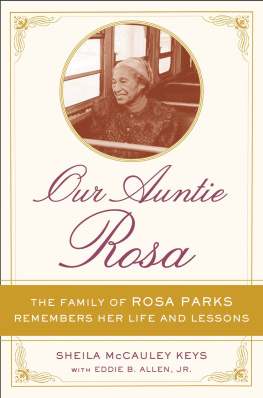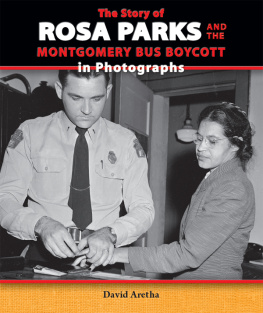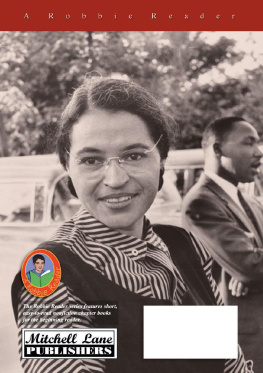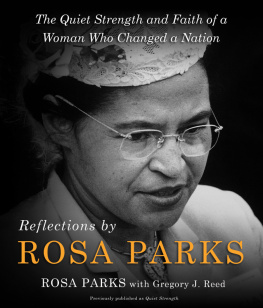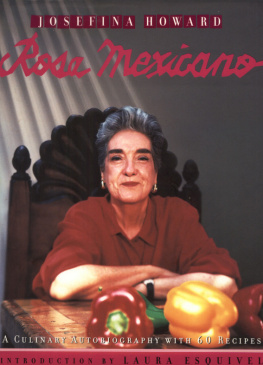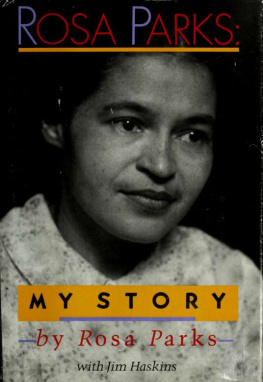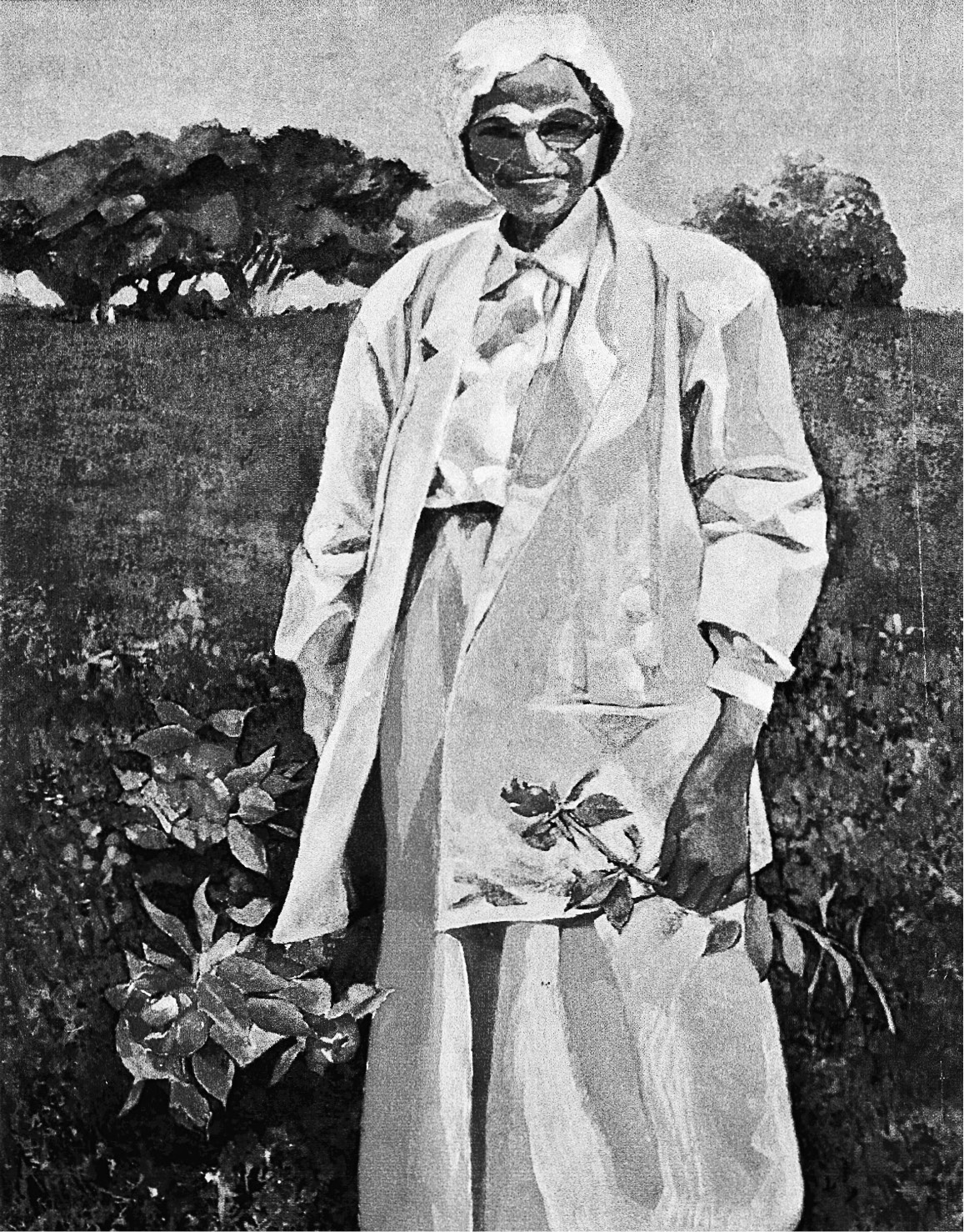
JEREMY P. TARCHER/PENGUIN
Published by the Penguin Group
Penguin Group (USA) LLC
375 Hudson Street
New York, New York 10014

USA Canada UK Ireland Australia New Zealand India South Africa China
penguin.com
A Penguin Random House Company
Copyright 2015 by Sheila McCauley Keys and Eddie B. Allen, Jr.
Penguin supports copyright. Copyright fuels creativity, encourages diverse voices, promotes free speech, and creates a vibrant culture. Thank you for buying an authorized edition of this book and for complying with copyright laws by not reproducing, scanning, or distributing any part of it in any form without permission. You are supporting writers and allowing Penguin to continue to publish books for every reader.
Defiant, acrylic and oil on burlap, by Shirley McCauley, 2004. All rights reserved by the artist.
Painting of Sheila McCauley Keys and Auntie Rosa, acrylic on canvas, by Nestor Madalengoitia, 2013. All rights reserved by the artist.
Paintings on pp. xi and 86 by Asheber Macharia, 2006. All rights reserved by the artist.
Most Tarcher/Penguin books are available at special quantity discounts for bulk purchase for sales promotions, premiums, fund-raising, and educational needs. Special books or book excerpts also can be created to fit specific needs. For details, write: Special.Markets@us.penguingroup.com.
Library of Congress Cataloging-in-Publication Data
Keys, Sheila McCauley.
Our Auntie Rosa : the family of Rosa Parks remembers her life and lessons / Sheila McCauley Keys with Eddie B. Allen, Jr.
p. cm.
ISBN 978-0-698-19009-2
1. Parks, Rosa, 19132005Family. 2. African American women civil rights workersAlabamaMontgomeryBiography. 3. Civil rights workersAlabamaMontgomeryBiography. 4. McCauley family. 5. Keys, Sheila McCauleyFamily. 6. African AmericansMichiganDetroitBiography. 7. African American political activistsMichiganBiography. 8. Older womenMichiganDetroitBiography. 9. Montgomery (Ala.)Biography. 10. Detroit (Mich.)Biography. I. Allen, Eddie B. II. Title. III. Title: Family of Rosa Parks remembers her life and lessons.
F334.M753K49 2014 2014038463
323.092dc23
[B]
Version_1
CONTENTS
For Sylvester and Daisy McCauley
THE WOMAN WE KNEW
Coming from such a simple background in rural Tuskegee, Alabama, Rosa Louise McCauley probably never imagined she would one day be known around the world. Born to our grandparents James and Leona McCauley on February 4, 1913, Auntie Rosa was introduced to struggles and poverty long before she would be introduced to foreign dignitaries. The separation of our grandparents when she was still just a girl added to her responsibilities at home, including helping look after her younger brother, our father, Sylvester. It would be decades later before she earned even more responsibility, including her most honorific title, Mother of the Movement, when she defied legal segregation on a Southern bus line in 1955.
After largely disappearing from the public once she moved North, our aunt became more widely acknowledged as a hero. She went on to receive the Presidential Medal of Freedom; a spot on TIME magazines 100 Most Influential People of the 20th Century list; forty-three honorary doctorate degrees; and streets, buildings, and monuments named in her tribute. Throughout all this, she still found her way to our weddings, birthday parties, and other family events. She was there encouraging and helping us throughout our lives. To the world, she was Rosa Parks, but to us, she was, simply and wonderfully, Auntie Rosa. This book is about the woman we knew.
Deborah Ann Ross
Rosalind Elaine Bridgeforth and son, Alan Bridgeforth
Asheber Macharia; wife, Najma Wilson; and daughter, Zakiya Watts
Rhea McCauley and daughter, Edria Fussello
Robert McCauley
Susan McCauley; sons Sean and Broderick; and daughter, Whitney
Shirley McCauley and son, Paul Jenkins
Sheila McCauley Keys and sons Terrence Jamal Keys and Thomas McCauley Keys
Richard McCauley
Lonnie McCauley, son of Sylvester McCauley Jr. (deceased)
Marc McCauley, son of Mary McCauley
February 2015
Painting by Asheber Macharia
Preface
PLEASED TO MEET YOU, MRS. PARKS
In a peculiar way, I felt that I knew her well.
We spoke only twice, and then Id imagine no more than twenty or thirty words between us from both events combined: the first when she awarded me a scholarship bearing her name and the second after a home invasion by a man who actually called that name aloud, asking, Arent you Rosa Parks? before he hit her in the face and robbed her.
Maybe it was just that same comfort Ive often experienced with women who fell into my grandmothers peer group. Ive noticed this, increasingly, since Mama Harriet, Harriet Crainborn, like Rosa McCauley, in Alabama, just months earlierdied in 1996.
Yet the truth was, despite the fact that a newspaper colleague of mine was her private photographer, and despite my years as a Wayne State University Rosa Parks Scholar in her adopted hometown of Detroit, I knew Mrs. Parks no more on the personal level than any of her distant admirers. I felt privileged, of course, to shake her hand at the scholarship ceremony and pose with her for a quick photo. A few years later, I found myself telephoning her assistant from my desk at the Ohio newspaper where I worked when I needed a quote or two for my story about the heinous attack Joseph Skipper committed against the then-eighty-one-year-old Mother Parks, as she was known to neighbors. After promising that Id be brief, since she was tired and recovering from the ordeal, I was connected with Mrs. Parks, who told me she was okay.
Things have worked out well, I remember her saying in our two-minute interview.
During our last encounter, she spoke no words at all. On that day in 2005, Id been asked to cover her funeral for the AOL Black Voices website. I heard President Bill Clinton tell the story of how, as liberal white kids in Arkansas, he and his friends decided they didnt have to ride in the front of the bus upon learning that Mrs. Parks had refused to stand and ride in the back. I watched as she was saluted in a manner befitting heads of state by a string of high-profile dignitaries, including Detroit Mayor Kwame Kilpatrick and then-senator Barack Obama. It was a most moving day, which concluded as onlookers lined the streets awaiting her funeral procession to the burial ground. Calls of We love you, Rosa! were absent of the tone of disrespect most people who were raised like I was often associate with addressing elders by first name. What it really spoke to was the familiar kinship these folks, who probably knew her even less than I did, had developed with our citys best-known freedom fighter.

